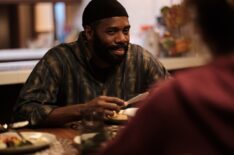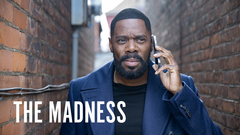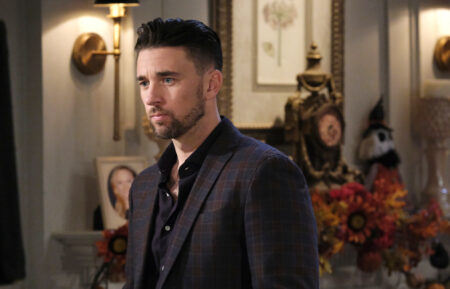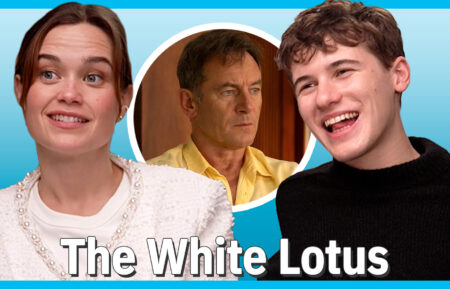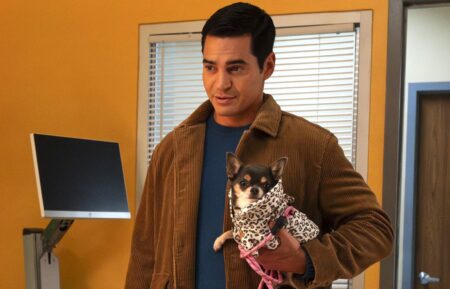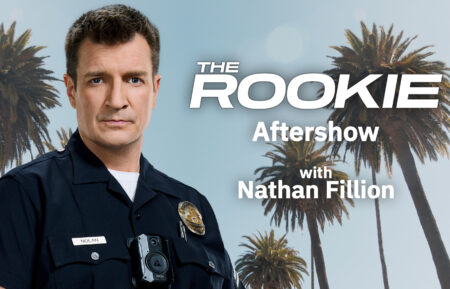Colman Domingo Details Why ‘The Madness’ Is a Drama for Today’s Era of Media Feeding Frenzies
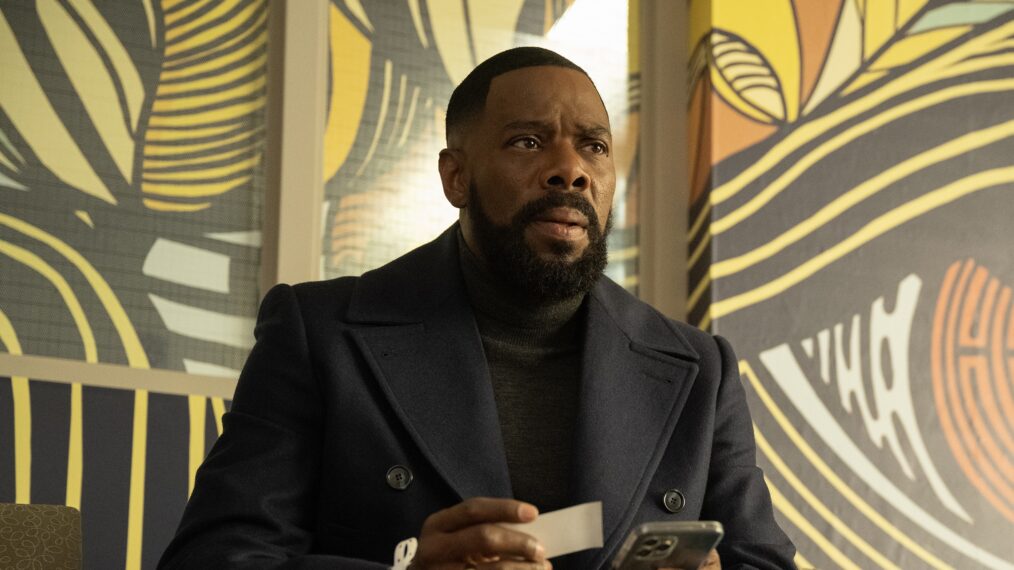
Q&A
As a smooth-talking media and political pundit in The Madness, Colman Domingo’s Muncie Daniels is used to commenting on politics and the news — not becoming the news. However, his fate will quickly change for the worse when we meet him in the new series.
When the CNN personality discovers the dead body of a white supremacist in the woods near where he’s staying in the Poconos, he winds up in the crosshairs of law enforcement and possibly framed for murder — and even his lawyer friend Kwesi (Deon Cole) warns the silver-tongued Muncie, “You’re not going to be able to talk your way out of this…. They are going to pin all this on you.”
In this paranoia-inducing Netflix thriller, Daniels finds himself in the middle of a sprawling conspiracy that delves into the darkest corners of society and explores the intersections between the wealthy and powerful, the alt-right, and other fringe movements. “[The series] is examining the climate we’re in right now,” Domingo teased to TV Insider. “Who sows those seeds of disinformation? Who’s puppeteering all of this?”
To clear his name, Muncie must figure out whether to trust FBI agent Franco Quiñones (John Ortiz) and reconnect with his working-class, activist roots in Philadelphia while reuniting with his family, which includes teenage son Demetrius (Thaddeus J. Mixson), estranged wife Elena (Marsha Stephanie Blake), and daughter Kallie (Gabrielle Graham) from a previous relationship. “He’s trying to solve a crime,” creator Stephen Belber previews, “but at the same time he’s trying to solve something inside of himself.”
To find out what else we should know about the new thrill ride, we spoke to The Color Purple and Ma Rainey’s Black Bottom star Colman Domingo — who played Victor Strand on Fear the Walking Dead for eight seasons, won an Emmy for Euphoria, and was nominated for a 2024 Oscar for the civil rights drama Rustin — about the bind in which Muncie finds himself in The Madness, the similarities he shares with the character, and the resonance of a story that speaks to our age of online disinformation and conspiracy theories.
Why were you drawn to this series and this character? What about it made you say yes to it?
Colman Domingo: There’s so much about it that is raising questions about who are we in America right now. What do you believe in? And what are you believing? What’s being fed to you? These are questions that I have deep in my heart, and the series is bringing out those thoughts I have in the back of my head. Like who is manipulating all of us? I do believe there’s people feeding the public misinformation, but it benefits people with money, power, and position.
Are there similarities you share with Muncie?
Wildly enough, he’s from my neighborhood, from West Philly. He’s a college professor. So am I. There’s a lot of similarities. He’s a public-facing person. Even some of his ideology, where he believes that if you just get people at the table to sit and have a civil conversation, things will get better. I do believe that. I actively do that in my life. And I thought, “Oh, I understand Muncie. I understand what he’s trying to do.” But then the series takes him on another journey to actually go more full-throttle and understand all the dynamics he’s been espousing but not really having to get in the mud with.
Is Muncie’s journey in the series a metaphor for how we’re all trying to make sense of this firehose of facts and information, along with disinformation, conspiracy-mongering, and lies that are coming at us 24/7?
Yeah. It’s your modern-day North By Northwest, your modern-day Three Days of the Condor. He’s an everyman who has to go on this journey that he’s not ready to go on. He didn’t even know he’s been preparing for it. He was just living his best life, has a great position at CNN, and has been studying jujitsu for his own health. But he didn’t know that he’d need all that to go down the rabbit hole for real.
What’s Muncie’s relationship like with his estranged wife, son Demetrius, and his older daughter Kallie from another relationship?
All of it is precarious. What’s going on between he and his wife, we made it a gray area. Maybe they both started out as young activists, and the other one moved into celebrity, and the other one is a college professor, and they’re just not meeting [each other] where they used to be. It was more about having a crisis of faith in each other. Then with his daughter [Kallie], he made choices when he was younger, in a relationship he was in before he went to an Ivy League school. So he’s sort of been a deadbeat dad in that way. Then with his younger son, he’s sort of an absentee father. He believes he’s doing the best that he can by providing financially and showing up when he can. But I think he’s been a bit selfish. So this whole crisis is helping him examine not only who he is, but who has he been—and not been—to his family. Now he’s got to do some relationship repair; at the same time, he’s trying to advocate and save his own life and protect his family.
Has he lost himself a bit over the years in pursuit of success and ambition?
I think so. But I think if you asked Muncie, he wouldn’t say that. I think he believed, no, it’s okay to change. It’s OK to have access and agency. But I think at some point he didn’t realize even in the position that he had, he was just all talk. He was just a talking head. He wasn’t actually doing anything but adding to the noise of the media circuit business.
In the crisis that he goes through, how does his family help him to survive?
I think he didn’t realize how much he needed them. When we meet him, he’s in a place of stasis. He’s been trying to write this book for years. So he decided to go to the Pocono mountains to try and start writing something. Then he goes on this journey. I think it’s a beautiful hero’s journey. He didn’t know he needed all these things. He didn’t know he needed a heart. He didn’t know he needed a brain…It is ‘no place like home.’ But he realized that his home was attached to other things like celebrity, clothing, and having access. But all of that became more superficial than he even imagined.

Amanda Matlovich / Netflix
Muncie was a housing activist in his youth, and he reconnects with his West Philly roots and the people in his life from that time. How does he change during the course of the series?
I think it’s about helping him to bridge the two parts of himself. It’s one of the first arguments that my character has with the fantastic Eisa Davis, who plays Renee, while hosting a show on CNN. And it’s at the core of the problem. For me, it’s a question of, “What’s the best way?” He’s like, “I am Black and I don’t have to actually be out on the streets anymore. I have more access here on television where I can affect a lot of more people.” And so for me, it’s raising the question of, “Is that right or is that wrong? Or is there a balance of both?”
How do race and systemic racism factor into the story of a Black man who gets blamed for the death of a white supremacist? How do you think that will be eye-opening for some viewers?
Race plays into it a great deal. Muncie is someone who is probably very adept at code-switching [adjusting one’s style of speech, appearance, and expression to conform to a given community and reduce the potential for discrimination]. When you have celebrity and access, you live more in a bubble where you’re probably not perceived in certain ways. But when all of that goes away, once Muncie has to let go of his Range Rover, his Tom Ford suits, and his position at CNN, he’s perceived as just another ordinary Black man on the street.
So even when he goes into that New York shop and changes into a T-shirt, baseball cap, and hoodie [to disguise himself], he’s trying to normalize. Before, he believed was a bit more elevated in some way. I love the question that [his estranged wife] Elena asked him: “What were you doing going over to this white man’s house out in the woods? You felt like you had the privilege to do that? You have to always be careful. You don’t know what’s on the other side. You’re a Black man in America.” He forgot for a moment.
What does the title, The Madness, refer to?
I think it’s about the madness that we’re all living in when it comes to the 24-hour news cycle and trying to download and sift through information. It’s maddening! And also, I think the madness is also internal, that internal struggle of like, “Who are you, and what do you believe in? Who is real, and who is not?” I think that’s the madness.
The Madness, Series Premiere, Thursday, November 28, Netflix
From TV Guide Magazine
Crime, Comedy & Convenience Stores: Unwrapping Hulu's 'Deli Boys' With the Cast
Cupcakes, corndogs…and cocaine?! Two brothers find themselves in a hilarious pickle when they inherit an unseemly bodega biz in Hulu’s new comedy Deli Boys. Find out how The Sopranos and Real Housewives of Orange County influenced the cast. Read the story now on TV Insider.

